War and humanitarianism, medicine and public health, rights and justice... Discover CRASH publications sorted by themes.
The fact that CRASH publications are written from an aid practitioner's, rather than researcher's, perspective, does not exempt them from the demands of rigorous research methods. We try hard at this, with the help of (volunteer) research professionals. The publications are not the MSF party line, but rather tools for reflexion based on MSF's framework and experience. They have only one purpose: to help us better understand what we are doing. Criticisms, comments and suggestions are more than welcome - they are expected.
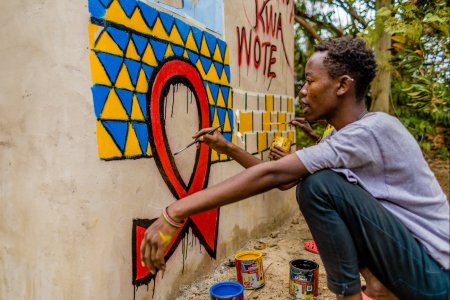 Bryan Jaybee
Cahier
Bryan Jaybee
Cahier
Representations of HIV and impact on care seeking among the men of Homa Bay, Kenya
06/09/2020This study, conducted among the men of Homa Bay in Nyanza Province, Kenya, assesses the representations of HIV and impact on care seeking. It reveals that simply setting up a testing or care campaign does not necessarily mean that the entire population will participate; the message has to be tailored to the target population and fine-tuned even within that population.
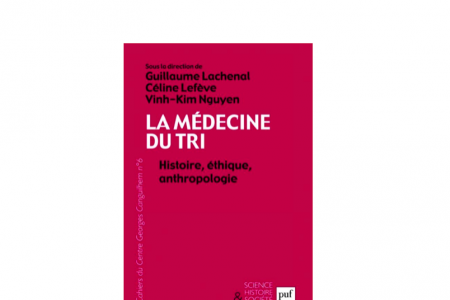 Puf
Analysis
Puf
Analysis
In a disaster situation: get your bearings, triage and act
04/03/2020On 12 January 2010, a high-magnitude earthquake caused numerous buildings in the city of Port au Prince in Haiti to collapse. Tens of thousands of people were killed or injured by falling blocks of concrete. The aftershocks from the earthquake, the predictions made by some seismologists and public rumours prompted fears of a repeat of the disaster. Houses, schools, churches, hospitals and business premises – all the places that had housed the capital’s residents and their main activities – had become lethal traps and a permanent threat.
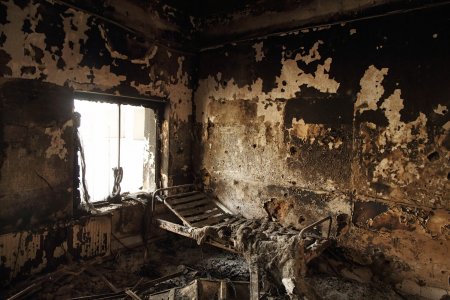 Andrew Quilty
Op-ed
Andrew Quilty
Op-ed
Julian Assange, or the vengeance of States
Concerned about the fate of these two whistleblowers, particularly the founder of Wikileaks, Jean-Hervé Bradol and Rony Brauman, former presidents of Doctors Without Borders, demand that he receive treatment.
The Challenges of Globalization of International Relief and Development
11/27/2019First Published December 1, 1999 - Nonprofit and Voluntary Sector Quarterly (NVSQ) - Volume 28 Issue 1.
This article begins with a look at the role played by Médecins Sans Frontières (MSF) since its inception in 1971, and then looks at the challenges facing MSF today. It focuses on the confusion of humanitarian and political roles and on the goals MSF has laid out for itself to address this confusion. Humanitarian aid has become the favored response of governments to political crises, and governments have increasingly turned to NGOs to carry out their policies. In turn, NGOs have become increasingly dependent on governments for financial support. These changes have politicized aid delivery and made it difficult for NGOs to maintain their independence. In addition, as the number of NGOs increases and their activities become more specialized, there are pressures toward institutionalization and bureaucratization. To respond to these challenges, MSF has identified several goals, including maintaining organizational independence and flexibility and avoiding bureaucratization.
War Breaks Out: Interpreting Violence on Healthcare in the Early Stage of the South Sudanese Civil War
11/22/2019This article seeks to document and analyse violence affecting the provision of healthcare by Médecins Sans Frontières (MSF) and its intended beneficiaries in the early stage of the current civil war in South Sudan. Most NGO accounts and quantitative studies of violent attacks on healthcare tend to limit interpretation of their prime motives to the violation of international norms and deprivation of access to health services. Instead, we provide a detailed narrative, which contextualises violent incidents affecting healthcare, with regard for the dynamics of conflict in South Sudan as well as MSF’s operational decisions, and which combines and contrasts institutional and academic sources with direct testimonies from local MSF personnel and other residents. This approach offers greater insight not only into the circumstances and logics of violence but also into the concrete ways in which healthcare practices adapt in the face of attacks and how these may reveal and put to the test the reciprocal expectations binding international and local health practitioners in crisis situations.
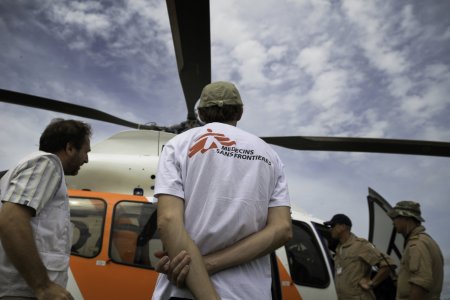 Robin Meldrum/MSF
Analysis
Robin Meldrum/MSF
Analysis
Ending the Code of Silence on Abductions of Aid Workers
11/22/2019This article discusses the policy of absolute secrecy on abductions adopted by aid organisations. It argues that the information blackout on past and current cases is to a large extent a function of the growing role of private security companies in the aid sector, which promote a ‘pay, don’t say’ policy as a default option, whatever the situation. The article contends that secrecy is as much an impediment to resolving current cases as it is to preventing and managing future ones. It suggests abandoning the policy of strict confidentiality in all circumstances – a policy that is as dangerous as it is easy to apply – in favour of a more nuanced and challenging approach determining how much to publicise ongoing and past cases for each audience, always keeping in mind the interests of current and potential hostages.
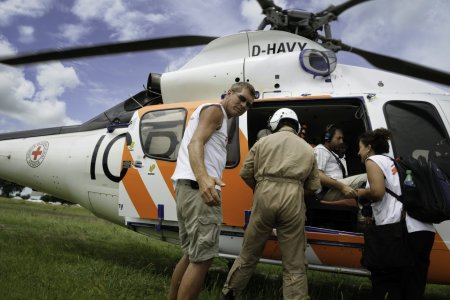 Robin Meldrum/MSF
Analysis
Robin Meldrum/MSF
Analysis
Oases of Humanity and the Realities of War. Uses and Misuses of International Humanitarian Law and Humanitarian Principles
06/28/2019The rehabilitation of international humanitarian law (IHL) has become a priority for those who think that the horrors of contemporary wars are largely due to the blurring of the distinction between civilians and combatants and for those who think that campaigning for the respect of IHL could result in more civilised wars. Similarly, respect for humanitarian principles is still seen by many as the best tool available to protect the safety of aid workers. In this text, I argue that both assumptions are misled. The distinction between civilians and combatants, a cornerstone of IHL, has been blurred in practice since the late nineteenth century. In addition, humanitarian agencies claiming to be ‘principled’ have been victims of attacks as much as others. History and current practice tell us that neither IHL nor humanitarian principles provide safety or can guide our decisions. Accepting their symbolic value, rather than their unrealised potential to protect and solve operational dilemmas, would free humanitarian agencies from endless speculations.
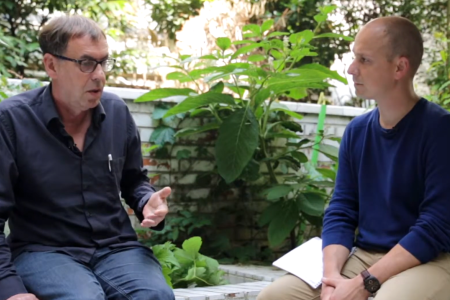 Video
Video
The 20th anniversary of the MSF Access Campaign
06/03/2019To address the political, economic and legal barriers to patients' access to life-saving treatments, MSF created, in 1999, the Access Campaign (the Campaign for Access to Essential Medicines). In these videos, Jean-Hervé Bradol, doctor and crash study director, answers questions from Andrea Bussotti (MSF-France Operational Communication Manager). In the light of the historical background of the early days of the Access Campaign, he analyses the medico-operational context of the Campaign today and asks himself the question of its objectives.
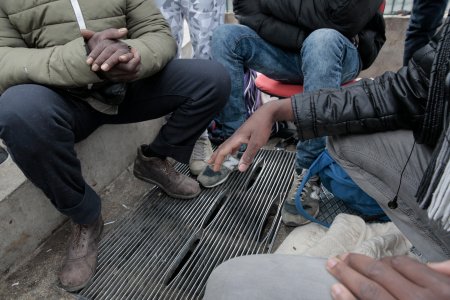 Antoine Kremer/MSF
Analysis
Antoine Kremer/MSF
Analysis
Médecins Sans Frontières-France: tensions arising from the “Migration” projects
05/07/2019In the summer of 2015, the French section of Médecins Sans Frontières started aid projects for migrant populations in Greece and France. The launch of these operations was the occasion for lively discussions within the association, both in terms of public positioning (how to justify an intervention in a rich country and not get lost in "political" territory?), and in terms of revising our operating methods, knowing that the primary needs of migrants were not primarily medical. Some people then recalled the association's militant practices in the 1990s, which were sometimes considered as abuses. By retracing the history of the French Mission, Michaël Neuman seeks to understand, with regard to the migration issue, the complex articulation between operational constraints, political positioning and militant practices.
